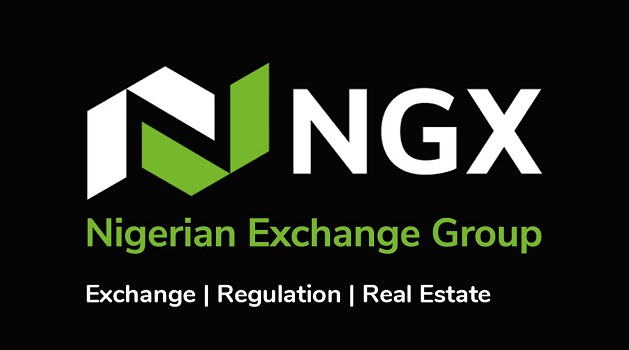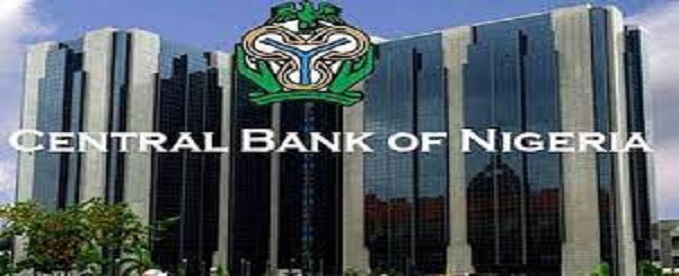E-Financial
Panel Recovers $7m ‘Stashed’ in Heritage Bank, Others

The Special Presidential Investigation Panel (SPIP) for the Recovery of Public Property has recovered seven dollars million (N2.1 billion at official rate) illegally kept in Heritage Bank.
Mr Okoi Obono-Obla, chairman of the panel, disclosed this while briefing President Muhammadu Buhari on activities of the panel.
Lucie-Ann Laha, spokesperson of the SPIP in a statement on Tuesday, quoted Obono-Obla as telling the president that the panel had also recovered N533 million and land worth N1.5 billion, all from the “previous management” of NEXIM Bank.
He said the recovered funds and property had since been returned to the bank.
Obono-Obla stated that the panel had also recovered and returned to the National Theatre, N24 million which was allegedly diverted by some directors of the agency.
Also recovered, he said, were two hectares of land in Abuja valued at over N2 billion, belonging to the National Council of Arts and Culture.
The chairman further told President Buhari that the panel also recovered and returned a part of Agura Hotel belonging to the Nigerian Ports Authority (NPA).
He said the recovered part of the hotel had been illegally “annexed by some so-called powerful persons with untouchable connections for over 20 years’’.
Other recoveries by the SPIP, according to Obono-Obla, are 19 official Sports Utility Vehicles allegedly made away with by former Commissioners of the National Population Commission after their tenures in office.
He said the panel had charged a former Director in the Federal Ministry of Power, Works and Housing to court for failure to declare his assets.
The assets include houses in upscale areas of Abuja, a quarry and a farm within the Federal Capital Territory, for which a court has granted an interim forfeiture order, he said.
“The SPIP is also investigating some members of the National Assembly and former governors for a range of alleged offences.
“These include illegal purchase of designated official residences for principal officers of the National Assembly excluded from the monetisation policy at giveaway prices.
“Others are purchase of several property worth hundreds of millions in various currencies, and flagrant abuse of office thus causing financial adversity to the nation,” Obono-Obla said in the briefing.
He said the SPIP was partnering with the United Kingdom’s Home Secretary to ensure that some public officers “perceived to have looted public funds and illegally acquired assets both in Nigeria and the UK’’ were prevented from entering that country.
The SPIP chairman equally told Buhari that the panel was beaming its searchlight on several companies for a wide range of alleged offences.
Some of the companies, he said, are Celtel, for alleged tax evasion since 2005; Western Oil and Gas, for illegally drilling crude oil in Delta, and seven others for alleged failure to pay royalties to the Federal Government in about 10 years.
He said some multinational oil companies based in Egi Kingdom, Rivers, were also being investigated for allegedly conniving with unscrupulous individuals to dodge their obligations to the community to the tune of N38 billion and 30 million dollars.
“Also under investigation by the panel is another company, which has failed to to fulfill its contractual agreement to dredge the Calabar Channel, years after receiving $12 million.
“The panel has also compiled a list of over 200 past and serving public officers perceived to have illegally enriched themselves at the expense of the nation and the Nigerian people, among others,” Obono-Obla said in the briefing.
Buhari, according to the SPIP spokesperson, assured the panel of his continued support and non-interference in line with his administration’s stance on the anti-corruption fight.
Obono-Obla said the panel would remain committed to its mandate, in addition to complementing the Federal Government’s fight against corruption.
He solicited the continued support of Nigerians to the panel with useful information that would lead to the recovery of looted public assets.
E-Financial
Popoola, NGX Group CEO Advocates Pan-African Market

Temi Popoola, Group CEO, Nigerian Exchange Group Plc (NGX Group) reiterated the transformative potential of Africa’s capital markets at the launch of the Ethiopian Securities Exchange (ESX).

Speaking at the event, according to a statement from NGX. Popoola emphasised the need for stronger regional collaboration, government-private sector synergy, and innovative market solutions to unlock the continent’s economic potential.
NGX Group’s strategic investment in ESX underscores its leadership in advancing Africa’s capital market infrastructure. “The launch of ESX represents a pivotal moment for Ethiopia and the broader African financial landscape,” Popoola stated.
“ESX will serve as a crucial mechanism for capital formation and market liquidity, driving sustainable economic growth.”
Expounding on NGX Group’s investment rationale, Popoola highlighted Ethiopia’s immense market potential and the shared vision of fostering economic growth through innovation. “Our partnership transcends traditional investment parameters,” he explained.
“It is about ensuring that ESX evolves into a key player in Africa’s financial ecosystem, enabling cross-border investments and setting benchmarks for market development.”
Popoola also drew parallels with global success stories like India, which has leveraged its capital markets to achieve significant economic transformation. He emphasized the importance of responsible market opening to attract local and continental capital. “By following this path, Ethiopia can become a financial hub in Africa,” he remarked.
Prime Minister Abiy Ahmed lauded the launch of ESX as a transformative milestone in the country’s journey toward economic modernization.
“Today, we have officially rung the bell to launch the Ethiopian Securities Exchange, our nation’s first stock exchange,” the Prime Minister announced on X. “This is a call to global investors: Ethiopia offers immense potential, a fast-growing economy, and a clear trajectory toward shared prosperity.”
Tilahun Esmael Kassahun, CEO of the Ethiopian Securities Exchange, expressed confidence in the partnership with NGX Group. “We are pleased to welcome NGX Group as a strategic partner, building upon the existing support we continue to receive from them,” he said. Kassahun also emphasized the value of NGX Group’s expertise in shaping ESX’s growth and success.
Drawing from NGX Group’s six decades of experience, Popoola shared insights on diversifying financial instruments and expanding access to investment opportunities. “With the right mix of innovation, policy support, and regional collaboration, Ethiopia’s capital market can play a transformative role in driving economic development and establish itself as a leader in Africa’s financial ecosystem,” he concluded.
With the ESX poised to redefine Ethiopia’s financial landscape, NGX Group’s involvement highlights the critical role of partnerships and shared expertise in advancing Africa’s economic narrative.
E-Financial
eNaira Makes Appreciable Impact with 57% Rise in Value

Value of eNaira, the digital currency of the Central Bank of Nigeria, CBN rose by 78.8 percent year-on-year (YoY) to N18.32 billion in the first ten months of 2024 (Q3’24) from N11.66 billion in the corresponding period of 2023.

Analysis of data from the Central Bank of Nigeria (CBN), Monthly Economic reports for the review period showed that the value of eNaira was stable in Q1’24 at N13.98 billion in 2024 from the previous quarter Q4’23.
The value grew by 31 percent YoY to N18.38 billion in Q2’24 but fell by 0.16 percent to N18.35 billion in Q3’24.
However, Month-on-Month, MoM, the value of eNaira fell by 0.16 percent to N18.32 billion in October.
Introduced by the Central Bank of Nigeria, CBN in October 2021 the eNaira is the digital form of the Naira and used just like the paper money (cash). The eNaira wallet is a digital storage that holds the eNaira. The eNaira wallet is required to access, hold and use eNaira.
According to the CBN, the eNaira was designed to deepen financial inclusion by bringing more people into the financial space, support a resilient payment ecosystem, reduce the cost of processing cash, enable welfare intervention to citizens, increase transparency in revenue and tax collections, facilitate Diaspora remittances, reduce the cost of financial transactions and improve the efficiency of payments.
Recently, the Governor of CBN, Olayemi Cardoso revealed the apex bank’s Payment System Vision 2025 disclosed that a comprehensive review of the eNaira implementation would be made to enable broad and positive economic impact.
Speaking at the 59th Annual Bankers Dinner of the Chartered Institute of Bankers of Nigeria, CIBN, Cardoso said, “To further enhance confidence in the payment system, our Payment System Vision 2025 initiative will drive initiatives to encourage quick and affordable cross border payment, a critical step toward unlocking trade , investment and economic growth. “Additionally, the eNaira, our CBDC, holds significant growth potential.
“We will therefore undertake a comprehensive review of its implementation to optimize broad and positive economic impact.”
E-Financial
CBN Fines 9 Banks N1.3Bn over Cash Scarcity @ ATMs

Central Bank of Nigeria (CBN) has sanctioned nine deposit money banks (DMBs) for failing to ensure cash availability via automated teller machines (ATMs) during the festive season.

The banks have been fined a total of N1.35 billion for their non-compliance.
Each of the banks received a fine of N150 million.
The affected banks are Fidelity Bank, First Bank, Keystone Bank, Union Bank, and Globus Bank.
Others include Providus Bank, Zenith Bank, United Bank for Africa (UBA), and Sterling Bank.
A press release issued on Tuesday by Mrs Hakama Sidi Ali, acting director of Corporate Communications at the CBN, said, “In a clear message of zero tolerance for cash flow disruptions, the Central Bank of Nigeria has sanctioned Deposit Money Banks for failing to make Naira notes available through automated teller machines, during the yuletide season.
“Each bank was fined N150m for non-compliance, in line with the CBN’s cash distribution guidelines, following spot checks on their branches. The enforcement action follows repeated warnings from the CBN to financial institutions to guarantee seamless cash availability, particularly during periods of high demand.
“The affected banks include Fidelity Bank Plc, First Bank Plc, Keystone Bank Plc, Union Bank Plc, Globus Bank Plc, Providus Bank Plc, Zenith Bank Plc, United Bank for Africa Plc, and Sterling Bank Plc.”

 Telecom2 days ago
Telecom2 days agoUSSD Dispute: FG May Blacklist 18 Banks Allegedly Owing Telcos N250Bn

 E-Financial2 days ago
E-Financial2 days agoNGX Warns Public of Fraudulent Impersonation by ‘Value Gain’

 E-Business2 days ago
E-Business2 days agoKaspersky Discovers New Scam Scheme Targeting Businesses on Social Media

 General News2 days ago
General News2 days agoEnterprise Development Fund Launched to Bridge Capital Access Gap

 General News2 days ago
General News2 days agoUBA Rewards Customers with over N41m in Final Edition of Legacy Promo

 News2 days ago
News2 days agoAfDB to Partner LAMATA to Expand Existing Rail System

 E-Business2 days ago
E-Business2 days agoNIMC Trains 388 Personnel to Boost NIN Enrolment

 News1 day ago
News1 day agoEFCC Dismantles Fake Hotel Review Syndicate, Arrests 105 in Crackdown























